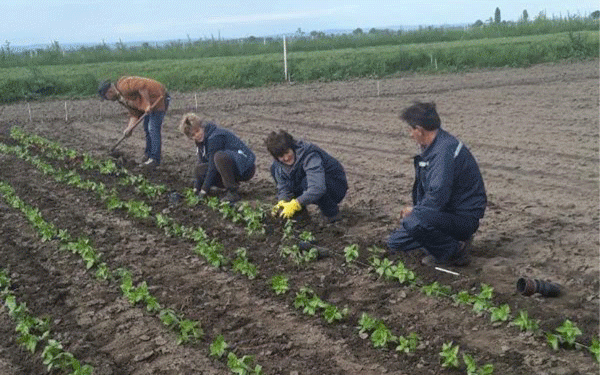Germany’s solidarity agriculture, or Solidarische Landwirtschaft (Solawi), has become a cornerstone of sustainable and community-focused organic farming. From just one farm in 1989, the movement grew to 92 farms by 2015 and now boasts 463 participating farms as of August 2024. This exponential growth reflects the rising demand for locally sourced, environmentally friendly food and stronger producer-consumer partnerships.
What Drives the Growth of Solidarity Agriculture?
A pivotal moment in the expansion of solidarity agriculture was the establishment of the Solidarity Agriculture Cooperative Network in 2011. This network not only formalized the concept but also defined the framework for cooperation between farmers and consumers. The focus on sustainability—both environmental and economic—has attracted farmers and consumers alike, with some farms extending their influence into neighboring countries like Austria, Switzerland, and Luxembourg.
While the majority of farms adhere to ecological farming practices, a significant number surpass the EU’s organic standards, obtaining certifications from Bioland, Naturland, or Demeter. These farms produce a diverse range of crops, including vegetables, fruits, herbs, dairy, and even beverages like wine and beer.
Spotlight on Kartoffel Kombinat
Kartoffel Kombinat, located 40 km northwest of Munich, is a shining example of solidarity agriculture in action. Founded in 2012 by Daniel Überall and Simon Scholl, the cooperative farm was born out of a desire to challenge the anonymity of supermarket food chains. Today, it is one of Germany’s largest solidarity farms, with 43 hectares under cultivation, 40 employees, and 3,500 consumer households.
The farm operates under strict sustainability principles:
- Chemical-Free Farming: No synthetic fertilizers or pesticides are used.
- Crop Diversity: Over 50 vegetable varieties are cultivated, alongside legumes, sunflowers, and buckwheat to enhance soil fertility.
- Energy Independence: A €1 million solar panel project aims to power the farm’s cooling and packing facilities.
Vegetable distribution follows a carefully planned weekly schedule. Harvested produce is washed, pre-cooled, packed, and delivered to 130 drop-off points across Munich. Consumer members pay an annual subscription fee of €936 (€600 for single households) for 51 weeks of fresh, locally sourced vegetables, bread, juice, and even home-brewed beer.
Recognized for Excellence
Kartoffel Kombinat’s efforts were recently acknowledged with the EU Organic Farming Award for Best Organic Farm, underscoring its leadership in the movement. Its success demonstrates the power of community-driven agriculture to achieve sustainability and scalability.
The Broader Impact on German Agriculture
Solidarity agriculture’s expansion coincides with Germany’s ambitious organic farming targets. By 2030, the country aims to have 30% of its agricultural land certified organic. Kartoffel Kombinat and similar initiatives play a critical role in reaching this milestone, offering a replicable model for farms across the nation.
Solidarity agriculture is reshaping the farming sector in Germany, fostering direct connections between producers and consumers while advancing sustainability. Kartoffel Kombinat exemplifies the potential of this model, combining environmental stewardship with community empowerment. As the movement grows, it offers a vision of farming that prioritizes local resilience and ecological health—a blueprint not just for Germany but for sustainable agriculture worldwide.







